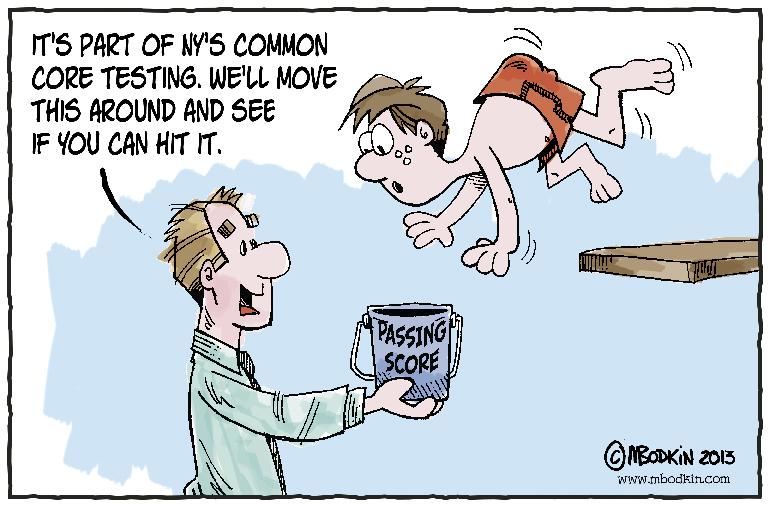Common Core: “Divergent Thinking” Through Subtle Brainwash
Forty-five states and the District of Columbia have already adopted and integrated Common Core standards into their main curriculum. Common Core, the new educational “standard” has been under fire since its introduction. Many teachers feel threatened and undermined by this “one size fits all” educational shift, arguing that individuality and the personality behind teaching are lost, despite the claims from its founders saying the opposite. Some states have passed laws inhibiting the passing of Common Core, such as Indiana, while others actively support it, such as Kentucky. It is evident, especially here in Whitman, how negatively both students and teachers feel about Common Core. Its effects are seen easily with math, in that few students, if any, truly understand how mathematics works. Math is an art through which numbers flow and compute, and yet students are taught in a way that makes addition more difficult than a non-Common Core precalculus problem. The problems associated with English curriculum will soon be seen, too. Students’ writing habits are a finely tuned recipe, the culmination of the styles and experience of their professors. If students are learning how to write from one source (usually ODELL), then their writing style will reflect that of just that source, rather than a unique combination created from students’ teachers.
Not only is Common Core harmful to the ability of students, but recently, it has become apparent that it is being used as a medium to sway children on political ideas. If these claims are found to be true, then the result should entail serious consequences. A recent piece from the Common Core curriculum covered the controversial topic of gun control. Now, it is not problematic to inform children about political issues relevant to today; in fact, it should be a crime not to. But this isn’t the problem. The problem is that the piece covered was strongly skewed and slighted toward the idea of stricter gun control. It is neither fair nor moral to subtly influence children, thereby insinuating that they are given all the facts to make an educated decision about their beliefs when they are only receiving biased information. Many believe that, without a doubt, the article favors stricter gun control. For example, look at some of the prompts for students containing wording that also influences their answers:
“Are rules and guidelines that were created over 200 years ago still applicable today?”
“When a greater number of people in our society own guns, are we safer or more at risk?”
More unbiased prompts covering the same information could be listed as such:
-“Analyze why gun laws were created the way they were and how they might need revision due to changing technology.”
-“Explain the pros and cons to greater gun freedom.”
-“What restrictions are in place preventing someone not fit from obtaining a gun? How might these restrictions be circumvented?”
It’s clear that Common Core is flawed in the way it currently is being created and run. If a 16-year-old boy can create better reading prompts than a company of adults, something is wrong with the allocation of funds and the team behind Common Core. But, for reasons previously explained, I urge you to do your own research as well so that you may be as well-informed as possible before you decide how you feel about Common Core.



